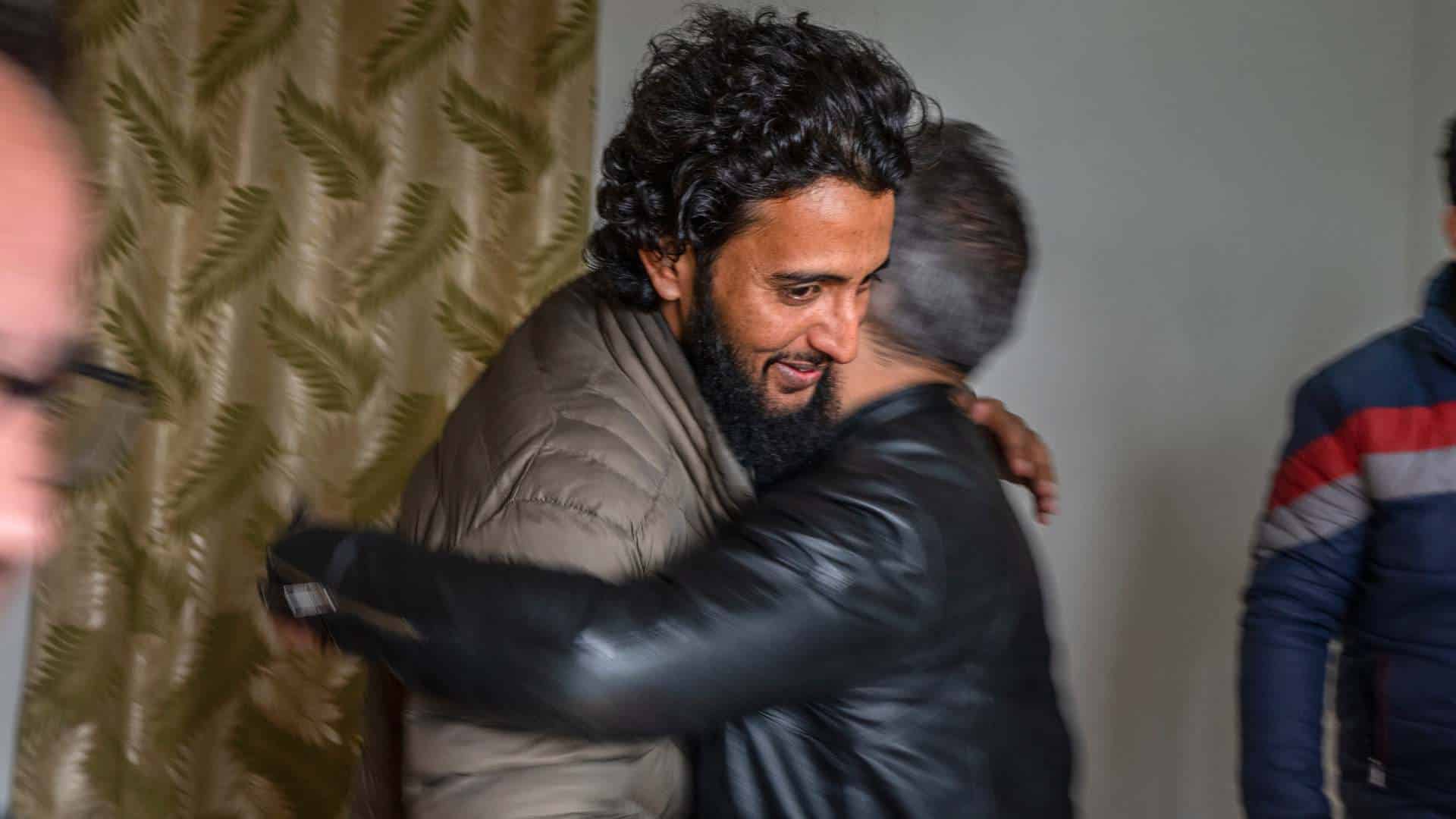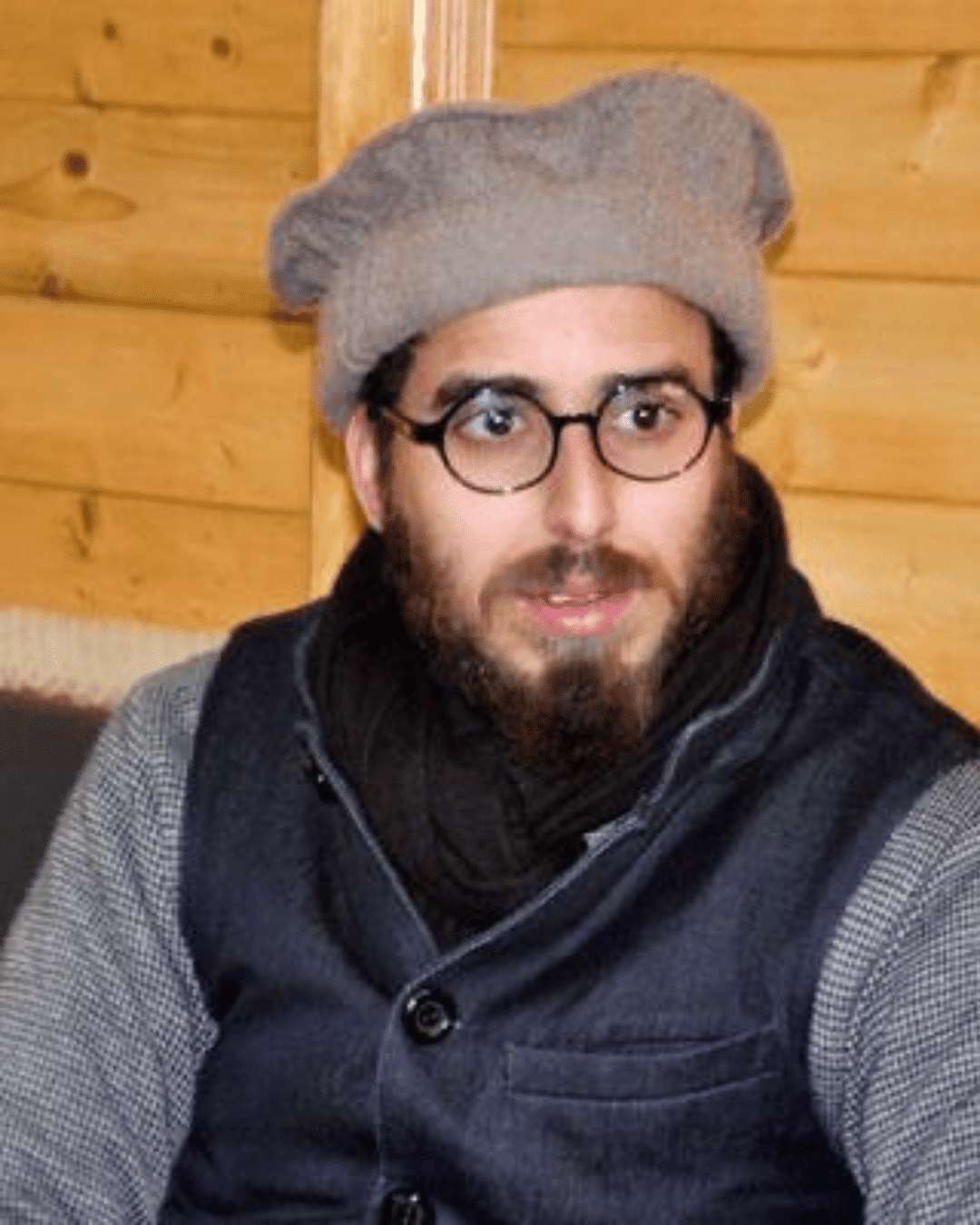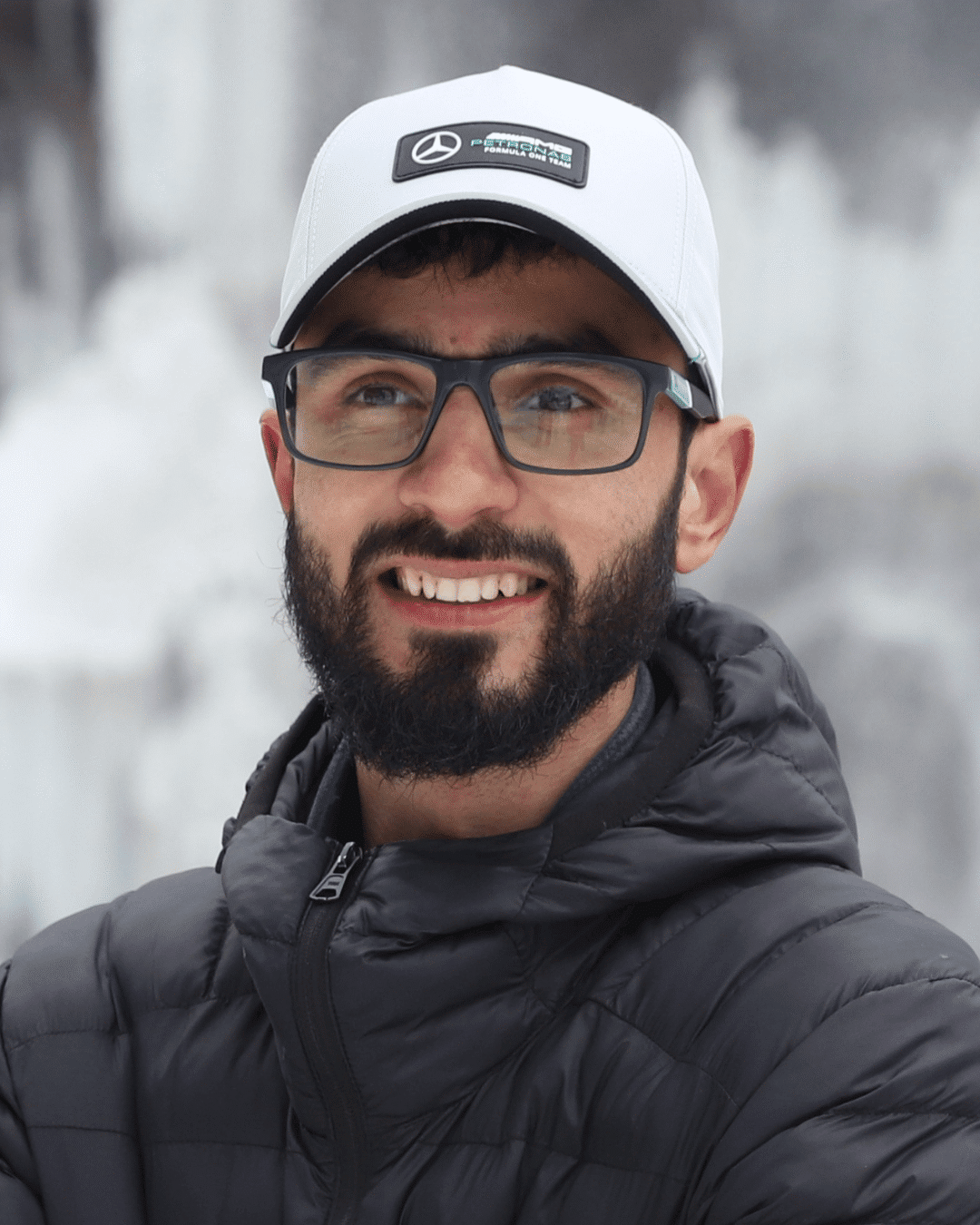India might be the world’s largest democracy, but journalists there lack the press protections their counterparts find in smaller democracies.

Fahad Shah, founder and editor of news portal The Kashmir Walla, hugs a colleague at his residence on the outskirts of Srinagar, Indian-controlled Kashmir, 24 November 2023, after he was released on bail nearly two years after he was arrested on accusations of publishing “anti-national content” and “glorifying terrorism.” (AP Photo/Dar Yasin)
This article was produced exclusively for News Decoder’s global news service. It is through articles like this that News Decoder strives to provide context to complex global events and issues and teach global awareness through the lens of journalism. Learn how you can incorporate our resources and services into your classroom or educational program.
Before packing up for the day at Press Colony in Srinagar, Firdous Qadri, a photojournalist in Kashmir does one final thing — he reviews his camera roll.
Frame by frame, he checks if any moment he captured could get him in trouble. In Kashmir, where journalism often means treading a thin line between truth and incarceration, such caution has become the second nature of every journalist.
“It’s like walking on a razor’s edge,” Firdous says, lowering his voice as if someone might overhear. “You don’t know if the story you are working on today could land you in jail tomorrow. It’s not just about reporting anymore; it’s about survival.”
The fear is not misplaced. The space for journalism in the region has dramatically shrunk ever since 2019, when the Indian government, led by Narendra Modi, unilaterally negated Kashmir’s special status.
Before that, Article 370 of the Indian Constitution had given Kashmir some autonomy. The region, known as Jammu-Kashmir has been claimed by both Pakistan and India since the two former British colonies became independent nations in 1947.
When watchdogs are watched
Since 2019, journalists have found themselves surveilled, summoned and in many cases jailed under harsh laws like the Public Safety Act (PSA) — a preventive detention law allowing imprisonment for up to two years without trial.
One such case is that of Fahad Shah, an independent journalist and the founder of The Kashmir Walla, a widely-read online publication in Kashmir. On 4 February 2022, Fahad received a call from the police, summoning him to the station regarding one of his reports. Hours later, he was arrested.
Though he managed to secure bail, his freedom was elusive.
On 20 March we celebrate World Storytelling Day, a global event to mark the importance of stories. Around the globe, people will be telling stories orally. This year’s theme is oceans.
News Decoder is all about the telling of people’s stories worldwide. We thought we would help celebrate with a week of articles about the importance of storytelling and the effect stories — and the silencing of stories — can have.
In a series of repeated arrests under different charges, Fahad was eventually booked under the PSA and exiled to a jail 200 kilometers away from his home in Srinagar.
The crackdown did not stop at Fahad’s arrest. In 2023, the Indian government blocked access to The Kashmir Walla’s website inside India, effectively silencing one of the region’s most influential voices. Its official handle on the social media site X was also suspended and a message now flashes on the page: “@tkwmag has been withheld in India in response to a legal demand.”
“They did not just imprison Fahad; they silenced an entire platform,” says a former employee of The Kashmir Walla, speaking anonymously out of fear of reprisal. “We know now that writing the truth here can come at a cost; your freedom or your life.”
Censoring the press
The suffocation of press freedom is not unique to Kashmir. Across India, a broader climate of fear has gripped journalists critical of the Modi government. Reporters Without Borders now ranks India 159 out of 180 countries on its 2024 World Press Freedom Index.
In Kashmir, however, the situation is far more precarious. Reporting here is not just a professional challenge; it is a potential death sentence.
For journalists like Firdous Qadri, the decision to capture anything comes with the risk of being detained, harassed or booked under charges not even related to journalism.
Every click of the shutter, every published story, could be perceived as anti-national — and in today’s Kashmir, that label carries a heavy price.
“I sometimes wonder if it’s even worth it anymore,” Firdous said, packing up his camera. “But then I remember — if we don’t tell these stories, no one else will.”
Fear of facts
Across the border in Pakistan, the notion of press freedom is but a mirage, obscured by the actions of the government. Journalists often find themselves harassed in their pursuit of factual reporting. The reporting is often met with intimidation, censorship and violence.
In the country, the facade of press freedom crumbles under the weight of regional disparities and draconian legislation. Hisan Gul, a seasoned multimedia journalist explained: “Press freedom depends on the region you belong to and the region you are talking about.”
He said that in Punjab, even minor incidents of human rights violations or corruption seize national headlines.
“Conversely in regions like Pakistani-administered Kashmir and Balochistan, burgeoning nationalist movements and grave issues such as enforced disappearances languish in the shadows,” Gul said.
The Pakistan-based journalist said that the recent enactment of laws empowering the government to incarcerate individuals for disseminating information obtained from confidential sources exemplifies this authoritarian shift.
“Such measures not only stifle investigative journalism but also embolden a culture of self-censorship among journalists,” Gul said.
Criticizing brings condemnation.
Pakistan’s government, in January 2025, passed a controversial bill granting the government vast powers to regulate social media content. The law allows authorities to block any material deemed offensive or critical of judges, the military or state institutions. Offenders can face up to three years of imprisonment or fines up to 2 million rupees.
Saba Imtiaz, a Pakistani journalist said that the issue of press freedom affects everyone, regardless of gender.
“It is just that it is a very hostile environment to work in,” she said. “The repressive laws, the restrictions on what you can report on, self-censorship, censorship in the press. It makes it all very difficult to work.”
Journalists in both Pakistan and India continue to face severe challenges in their pursuit of truth. Rights groups and media watchdogs have repeatedly called on the international community to intervene as press freedom continues to deteriorate in both Pakistan and India.
Amy Brouillette, director of the International Press Institute (IPI), said her organization is “gravely concerned” by the deterioration of press freedom there. “IPI has in the past called on the government to respect the rights of journalists and step up protections to ensure their safety,” she said. “And we urgently renew these same calls today.”
Journalists press on.
As Fahad Shah continues to navigate an increasingly hostile landscape in India, his resolve to return to his work remains unshaken.
“My arrest didn’t change my perception,” Shah said. “Journalism comes with immense responsibility because you are narrating the stories of people — stories that often make those in power uncomfortable. I have always known that honest journalism carries a price. There will always be consequences for standing by your principles and the ethics of this profession. But that’s precisely why it must be done.”
In both countries, reporting facts comes at a heavy cost. Yet, there are those who keep paying it — not for recognition, not for ease, but for the people whose stories remain suffocated beneath layers of silence, power and repression.
“I am doing a simple report of a demolition drive in Kashmir, but I am also reporting on how locals responded,” said one journalist who asked to remain anonymous. “The voices of journalists seeking attention may have drowned out in mainstream spaces, but they still echo in prison cells, abandoned newsrooms and resilient hearts.”
Before deleting the last leftover line from his draft for a local newspaper in Kashmir, he asked: “How much longer will the world let them bear this burden alone?”
Questions to consider:
1. How did the Indian government try to censor The Kashmir Walla?
2. Why is the press seen as a threat to the Modi government?
3. Do you think it is healthy for democracy for the press to be critical of the government? Why?

Qazi Shibli is an award-winning Kashmiri journalist and the editor of The Kashmiriyat. He reports on politics, the environment, social justice and human rights.

Sajad Hameed is an India-based journalist and Film-Maker covering human rights, politics, culture, health and science and technology in India. His work has been featured in a range of international and local media outlets.
